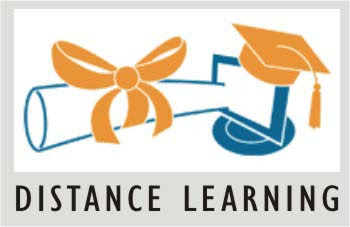 |
| Image Courtesy : bit.ly/1aFfMXQ |
With the increasing flexible approaches in attaining education along with the rapid developments in technology, middle-aged adults have now stopped repenting as why they had not taken up a course earlier after school that could have helped them achieve more success and prosperity. Well, it hasn’t been too late because home study or distance learning courses have started alluring not only those middle-aged adults and students willing to pursue higher studies but also ambitious working professionals, housewives and even pregnant women have begin to realise the worth of pursuing home study degrees.
Home study courses – What the survey reports say?
 |
| Image Courtesy : bit.ly/17Mp155 |
As per reports, it has been found that nearly 2/3rd of the kids are now in a dilemma as how they would be able to cope up with the cost of pursuing a full-time university education. In fact, 1 out of every 6 children today has accumulated fears whether affording university education would be easier for them or not.
However, some have been found to be concerned more about their living expenses rather than being unable to learn, while some others from middle-class families have expressed fears in falling prey to financial challenges on paying £9,000 on an annual basis for tuition fees.
In contrast, a group of distance learners brought some finer aspects about home study courses. According to them:
- Home study courses have significantly enhanced knowledge and have led students to achieve new skills
- A huge number of home study course pursuers have regained immense confidence which they haven’t from any other career programme.
- A lot of middle-aged adults and working professionals including women said that home study courses have helped them in brushing up their subjects they studied years back.
The Ipsos MORI poll
 |
| Image Courtesy : bit.ly/12I3XLK |
A survey in respect to the Ipsos MORI poll for the Sutton Trust was conducted taking a total of 2,595 students aged between 11 and 16. The group comprised students belonging to families of high, middle and low standards. The reports said: o There were about 23% of the students from the least affluent families who considered ‘cost’ to be the biggest factor while taking decisions to enrol in a course for higher education. In contrast, the richer class comprised only 14%. o Around 30% of the middle-class youngsters who failed to qualify for grants had been found to be heavily affected on paying tuition fees. o Students who were deeply concerned about their university finances were recorded to be around 65% out of which 28% cited the tuition costs, 19% indicated the living cost and 18% weren’t found to be earning while studying. o Only 7% were of the opinion that they didn’t have any trouble in regard to bearing the cost of studying in a university.
According to reports accumulated from another reputed online learning provider, full-time graduates studying in the United Kingdom have been found accumulating debits of over £25,000 from their tuition as well as living expenses. This is one of the biggest reasons why online distance learning has emerged to be a stunning alternative that is making students avoid huge debts.
How online courses are turning beneficial?
Academicians have agreed to the fact that there is not at all any difference between the degrees earned through online under UK universities in comparison to those obtained full-time. Rather, there are 5 factors that have accounted to the profitability of online courses:
 |
| Image Source : bit.ly/12nJYi5 |
Academicians have agreed to the fact that there is not at all any difference between the degrees earned through online under UK universities in comparison to those obtained full-time. Rather, there are 5 factors that have accounted to the profitability of online courses:
- Convenience
- Global Accreditation
- Affordability
- Extensive use of technology
- New and innovative learning styles
- Constant interactions through online forums
“Studying at a university over 1,000 km from where I live means popping over to the campus to borrow a book isn't an option. But the four week-long residential visits have been a unique experience”, said one of the UK university students, named Stephanie Thompson. The chief education adviser of a top-notch education firm, Sir Michael Barber moreover opined that a time would come when elite universities would almost be struggling to keep pace with the online universities. The speed of technological developments has taken such a form that the online universities will not take much time to wipe off all boundaries between the developed and underdeveloped nations.
With the increasing production of tablets and kindles, education will also acquire smoothness for all those living in the remote corners. In fact, Barber has high expectations from the British universities. He has urged them to stand out of the crowd to bring drastic changes in education like no one has ever expected till now.
In one of his reports named, ‘An Avalanche is Coming’, Barber wrote –
The traditional multipurpose university with a combination of a range of degrees and a modestly effective research programme has had its day.... While some of the most elite universities will no doubt be strong enough to continue … for others it may prove more difficult....
According to David Newton, professor of business studies, “online learning is still a mystery to many in academia”. He said that tutorials are a vital aspect of online higher education that often leaves the onlooker confused and mystified. The popular myth says that online education is equivalent to “reduced contact time and poorer quality provision” – whereas, the opposite is undeniably true.
So, what is crucial for today’s universities is to move away from their traditional lecture models and embrace any of the 5 models:
1 . the elite institution,
2 . the mass university
3 . the niche institute
4 . the local university
5 . the institution that aims to educate matured students
Today, studying in an online university can let you save over 50% on tuition fees in comparison to studying in a full-time institution. Believe it or not, you can even study online courses under UK universities and save up to even 60% on your course fees.
Remember, education is not just about earning a traditional bachelor's degree; rather it's a lifelong journey, and distance learning plays a key role in making that journey more accessible and extremely rewarding.


No comments:
Post a Comment